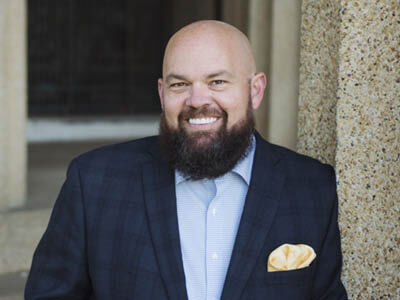What to know about COP30, this year's UN climate talks
News > Business News

Audio By Carbonatix
9:02 AM on Saturday, November 8
By MELINA WALLING
People from around the world are beginning to gather at the gateway of the Amazon in Belem, Brazil, for the 30th annual United Nations climate summit, the Conference of the Parties, known less formally as COP30.
The aim is simple, but lofty: for countries to work together to stop the worst effects of human-caused climate change.
That's a goal many experts say is slipping out of reach. But the stakes are high. Climate change is already escalating disasters that mean life or death for billions of people around the world, and delaying action will only worsen the problem.
Here's what you need to know about COP30.
With the world's largest rainforest on its doorstep, many have lauded Belem as well-positioned to highlight the role of Indigenous peoples and land stewardship in addressing climate change.
Although many past COPs have primarily focused on transitioning to cleaner energy sources, research has shown that shifting food systems is also a must. Countries also need to stop destroying the ecosystems that suck up pollution and protect humans from diseases.
The government of Brazil is spearheading a new initiative called the Tropical Forests Forever Facility, a program designed to give nations a monetary reward for protecting forests. It remains to be seen whether world leaders will pledge enough money to make the project a success.
Before the conference, many would-be attendees worried about whether the city could host tens of thousands of people. Delegates have booked rooms on cruise ships in the harbor. Others are staying in by-the-hour “love motels," and some activists said they might camp out.
The weather is expected to be oppressively hot and humid, and as such the host country has already written to attendees to make the dress code a little more informal.
But some experts and locals say any discomfort is a much-needed reality check, especially for those coming from rich countries. The government of Brazil was adamant that the conference needed to be in Belem to showcase what's at stake: Poorer communities are often more vulnerable to disasters worsened by climate change.
Ten years ago, countries made a historic deal in the first global pact to fight climate change.
Since then, the planet’s annual temperature has already jumped about 0.46 degrees Celsius (0.83 degrees Fahrenheit), one of the biggest 10-year temperature hikes on record, according to data from the European climate service Copernicus. The Paris Agreement was supposed to limit warming to 1.5 degrees Celsius (2.7 degrees Fahrenheit) above the historical average, but many scientists now say it's unlikely countries will stay below that threshold.
But the world has made some progress. Renewable energy is now cheaper in most places than polluting coal, oil and natural gas. And if countries agree to do what they've said so far, they could stave off a little over a full degree Celsius warming. That may not sound like much, but every tenth of a degree matters when it comes to the effects on catastrophic weather.
This year, countries had homework: to show up with their updated national plans to fight climate change. The United States, one of the world's biggest polluters, won't be submitting theirs, having dropped out of the Paris Agreement. And many experts have criticized other countries' plans as too little to do what's needed.
Unlike the Paris Agreement, or even last year when negotiators were trying to get countries to agree on how much rich countries should pay poor countries to adapt to climate change, this year's talks aren't expected to end with any ambitious new deal.
Instead, organizers and analysts frame this year's conference as the “implementation COP.”
“Those who go to Belem asking the question ‘what is the agreement that is going to come out of it?' are asking the wrong question,” said Christiana Figueres, former U.N. climate chief.
For the talks to be a success, world leaders need to beef up efforts and money for adapting to climate change and fund billion-dollar efforts to prevent deforestation and land degradation, said Suely Vaz, who used to run Brazil’s environment agency.
But Panama’s environment minister, Juan Carlos Navarro, told The Associated Press that he expects little from the talks. He said such meetings have become “a jet-setting orgy of bureaucrats who travel around the world with a tremendous carbon footprint and achieve nothing.”
___
Follow Melina Walling on X @MelinaWalling and Bluesky @melinawalling.bsky.social.
___
The Associated Press’ climate and environmental coverage receives financial support from multiple private foundations. AP is solely responsible for all content. Find AP’s standards for working with philanthropies, a list of supporters and funded coverage areas at AP.org.







